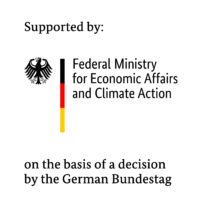Development of a no-harm application test for additives
Investigations with the Diesel Deposit Formation Test as well as the ENIAK test bench test
Brief description
Regardless of effectiveness, however, it must always be ensured that the additives do not have any adverse side effects. The no-harm criteria must be passed by an additive in order for it to be included on the so-called no-harm list. This list is used in the industry as a guide to the use of additives and in a sense represents a certificate of harmlessness.
To perform no-harm tests for additives such as lubricity improvers, flow improvers and antioxidants, the XUD-9 engine, developed by Peugeot in 1982, is used in accordance with the applicable test conditions to determine any deposits caused by diesel fuels on injectors. Due to the introduction of modern common rail diesel engines, the XUD-9 technique is no longer up to date today and is also unable to represent the internal injector deposits (IDID, Internal Diesel Injector Deposits) that occur in modern engines.
Therefore, the development of a new test method is necessary, which must be application-oriented and up-to-date as well as easy to perform and cost-effective. Both the Diesel Deposit Formation Test (DDFT) and the ENIAK bench test are suitable for this purpose.
Objectives of the project
The aim of this project is to evaluate the well-known DDFT laboratory test as well as the ENIAK bench test with regard to their suitability as a successor to the XUD-9 test method or to develop a modernized replacement from both methods as a no-harm test. The test method is to be developed for FAME-free diesel fuels (B0), diesel fuel-FAME blends (B10) as well as a selection of potential future diesel fuel compositions (DK_F) and thus will have relevance in the future.
Work tasks OWI
- Procurement and storage of the base fuels
- Pre-aging of the test fuels in the recirculating test rig for application-oriented test runs
- Production of fuel blends
- Modernization of the ENIAK test rig and test execution with different additive classes
- Evaluation based on injector diagnostics before and after test runs with the test rig as well as the collected measurement data
Performing research institutions
- OWI Science for Fuels gGmbH
- Universität Rostock, Lehrstuhl für Kolbenmaschinen und Verbrennungsmotoren
Project funding
The IGF project 22629 BG of the research association DGMK German Society for Sustainable Energy Carriers, Mobility and Carbon Cycles e.V.– DGMK, Große Elbstraße 131, 22767 Hamburg, was funded through the AiF as part of the program for promoting joint industrial research (IGF) by the German Federal Ministry for Economic Affairs and Climate Action based on a German Federal Parliament resolution.

Project durance
10/ 2022 until 03/ 2025
Contact
Dipl.-Ing. Sebastian Feldhoff
phone: 02407/ 9518-117
email: S.Feldhoff@owi-aachen.de
